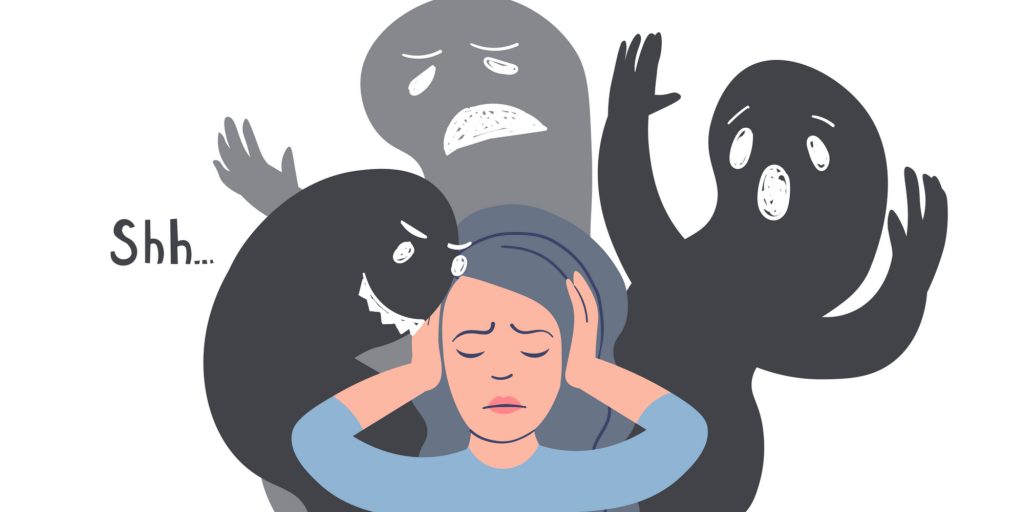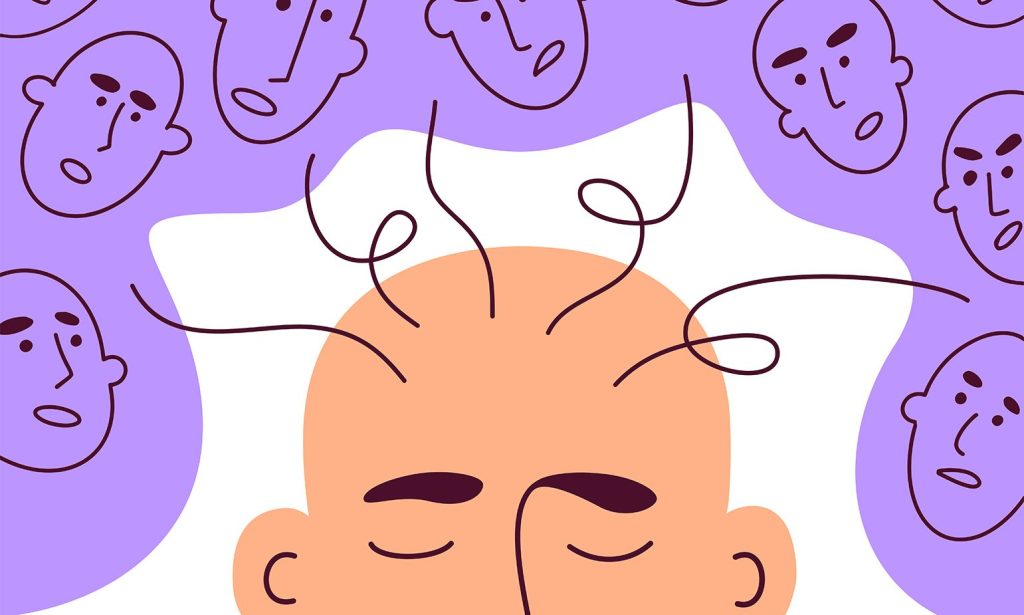Schizophrenia is a mental illness that can be extremely difficult to deal with. The symptoms can be very challenging and often cause a lot of distress. If you are someone who is coping with schizophrenia, or if you have a loved one who is struggling, then this article is for you. In it, we will discuss some tips for managing the symptoms and living a healthy life.
What is Schizophrenia?

Schizophrenia is a mental disorder that affects how a person thinks, feels, and behaves. It can cause hallucinations (seeing or hearing things that are not there), delusions (believing things that are not true), and problems with thinking, concentration, and emotional expression. Schizophrenia usually starts in the late teens or early 20s.
There are three main types of symptoms: positive, negative, and cognitive.
- Positive symptoms are features that are not normally present, such as hallucinations or delusions.
- Negative symptoms are features that are normally present but decreased in intensity, such as a lack of emotion or motivation.
- Cognitive symptoms are problems with thinking, concentration, and memory.
The cause of schizophrenia is still unknown, but researchers believe that it is caused by a combination of genetic and environmental factors.
- Genetic Factors: Schizophrenia tends to run in families, so it is believed that there is a genetic component to the disease.
- Environmental Factors: Exposure to certain viruses or chemicals may increase the risk of developing schizophrenia.
How To Deal With Schizophrenia?
There is no one-size-fits-all answer to this question, as the best way to deal with schizophrenia will vary from person to person. However, here are some general tips that may be helpful:
- Get Treatment: The most important thing you can do is to seek treatment from a qualified professional. This includes diagnosis and any necessary medication.
- Stay Connected: It is important to stay connected with family and friends, as they can provide support and help you cope.
- Stay Active: Exercise and physical activity can help improve mood and overall well-being.
- Avoid Drugs and Alcohol: Substance abuse can worsen the symptoms of schizophrenia.
- Seek Professional Help: If you are feeling overwhelmed or are having difficulties coping, it is important to seek professional help. A therapist or counselor can provide support and guidance.
Facts On Living with Schizophrenia
#1: It is estimated that about one percent of the population has schizophrenia.
#2: Schizophrenia affects men and women equally.
#3: The average age of onset is late teens or early 20s.
#4: The course of schizophrenia is unpredictable and can vary from person to person.
#5: There is no one-size-fits-all treatment for schizophrenia, but medication and therapy are the most common treatments.
#6: Schizophrenia is a chronic illness that requires lifelong treatment.
#7: Schizophrenia does not mean that a person is crazy or dangerous.
#8: Schizophrenia can be treated successfully, and many people with schizophrenia lead happy and productive lives.
If you are coping with schizophrenia, or if you have a loved one who is struggling, then please know that you are not alone. There is help available, and there is hope for recovery.
Therapy Options To Deal With Schizophrenia

- Cognitive Behavioral Therapy (CBT) is a type of therapy that focuses on the thoughts and behaviors that contribute to symptoms. It can help to identify and change negative thinking patterns.
- Psychodynamic Therapy is a type of therapy that explores the emotional roots of symptoms. It can help to identify and address unresolved issues from the past.
- Family-Based Therapy is a type of therapy that involves the family in the treatment process. It can help to improve communication and provide support for the family.
- Support Groups are a great way to connect with other people who are coping with schizophrenia. They can provide emotional support and practical advice.
If you are struggling with schizophrenia, please know that there is help available. There are many different types of therapy that can be effective, and there is no one-size-fits-all approach. Talk to your doctor about the best treatment for you.
Medication Options To Deal With Schizophrenia

- There are a variety of medications that can be used to treat schizophrenia. The type of medication will vary depending on the individual and their symptoms.
- Antipsychotic Medications are the most common type of medication used to treat schizophrenia. They work by blocking certain receptors in the brain, which helps to reduce symptoms.
- Psychostimulants are a type of medication that is used to treat symptoms such as agitation, aggression, and hyperactivity.
- Clonidine is a medication that is used to treat the physical symptoms of schizophrenia, such as sweating, racing heart rate, and high blood pressure.
If you are struggling with schizophrenia, please talk to your doctor about the best medication for you. There are a variety of medications available, and your doctor can help you find the one that is right for you.
Self Help Strategies To Deal With Schizophrenia
There are a number of self-help strategies that can be useful for people living with schizophrenia. Here are some tips:
- Stay connected to family and friends. They can provide support and understanding.
- Join a support group. Meeting other people who understand what you’re going through can be helpful.
- Stick to your treatment plan. Taking your medications and attending therapy sessions as prescribed can help you manage your symptoms.
- Identify healthy coping mechanisms. Developing a good self-care routine can help you deal with stress and anxiety. This may include things like exercise, relaxation techniques, and journaling.
- Be patient. Recovery from schizophrenia is a process that takes time. Don’t expect to cure all your problems overnight.
- Knowledge is power. Learning as much as you can about schizophrenia will help you better understand what you’re going through and how to best manage your symptoms.
Helping Someone Deal With Schizophrenia

If you have a friend or family member who is coping with schizophrenia, there are ways that you can help. Here are some tips:
- Learn about the disease and how it affects people. This will help you understand what your loved one is going through.
- Be supportive and understanding. Let them know that you are there for them, no matter what.
- Encourage them to seek treatment and stick with it. Schizophrenia can be treated, but it requires commitment from the person with the disease.
- Be patient. It may take time for your loved one to get better.
- Offer practical help, such as grocery shopping, cooking, or laundry.
- Avoid criticizing or judging them. This will only make things worse.
- Talk to them about their hallucinations and delusions. This can help them understand what is happening in their mind.
- Be there for them when they have a bad day. Let them know that it’s okay to feel sad, angry, or scared sometimes.
- Encourage activities that promote positive mental health, such as exercise, meditation, and spending time with friends and family.
Conclusion
Schizophrenia is a mental disorder that can cause hallucinations, delusions, and problems with thinking and emotions. It affects about 1% of the population. Schizophrenia usually starts in early adulthood. There is no known cure for schizophrenia, but it can be treated with medication and therapy. Schizophrenia can make it difficult to hold down a job or take care of oneself. However, many people with schizophrenia lead successful lives when they receive treatment.
There are several different types of schizophrenia, each with its own symptoms and treatments. Schizophrenia is often misunderstood by the general public. However, many people think that all people with schizophrenia are violent or dangerous. This is not true. If you or someone you know is living with schizophrenia, there are ways that you can help. Also, be supportive, understanding, and patient. Help them stick to their treatment plan and encourage positive activities for mental health.
A Word From Therapy Mantra
Your mental health — Your psychological, emotional, and social well-being — has an impact on every aspect of your life. Positive mental health essentially allows you to effectively deal with life’s everyday challenges.
At TherapyMantra, we have a team of therapists who provide affordable online therapy to assist you with issues such as depression, anxiety, stress, workplace Issues, addiction, relationship, OCD, LGBTQ, and PTSD. You can book a free therapy or download our free Android or iOS app.


